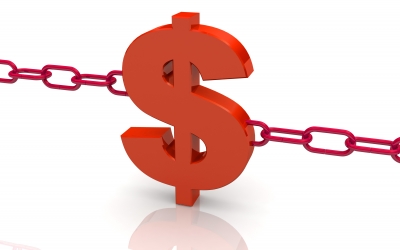When the tax deadline approaches, many business owners may be worrying about the IRS fines and penalties they could face. Some of these fees are associated with the IRS filing process itself, but others may be assessed after an IRS review of a completed return. What are some of these fines? How can an entrepreneur avoid these penalties? Here are some small business tax suggestions for escaping the most common IRS penalties.
Common IRS Tax Penalties for Small Business Owners
Self Employment Income Tax Tips for Freelancers
Are you a freelancer who is dreading the income tax deadline this year? If so, your concern is understandable since freelancers are among the most frequently audited taxpayers. The good news is that you can successfully navigate your way through the income tax code and avoid the traps that catch so many of your colleagues.
How to Pay Your Self Employment Taxes
Do you own and operate your own business? Did you have income left over after you subtract your operating expenses and tax deductions? If so, you will have to pay self-employment taxes to the IRS along with your federal tax return. While self-employment taxes represent a significant portion of the government's annual revenue, they also serve a beneficial purpose for the entrepreneurs who pay them. What are these taxes? How does the IRS decide how much you owe? How do you go about paying self-employment taxes?
How to Claim a Home Office Deduction
Do you work out of your home? If so, you may be eligible for a home office deduction on your federal income tax return. In past years, the IRS tended to audit taxpayers who claimed a home office deduction at a higher rate than other individuals, but the agency has since reduced the use of this practice. If you qualify for a home office deduction, now is the time to start claiming your rightful tax break! Here is a primer on claiming a home office deduction.
What are Franchise Taxes?
If you're not involved with a small business, you may never have heard of franchise taxes. However, these taxes are a vital part of the revenue streams of many U.S. states. The value of these taxes may be cold comfort for the business owners who are stuck with the tabs, though. But if you've been hit by the price of franchise taxes, it may be helpful to remember what these taxes are and how they benefit the state economy.
Income Tax Advice for New Businesses
Are you in the process of starting up a new business? You're probably feeling both excited and overwhelmed at the prospect of having your own company. While you might be optimistic now, though, it's wise to prepare for the inevitable financial recordkeeping you'll have to undertake along the way. Part of this is beginning your company on the right financial foot at the very start. Doing so will make your reporting at income tax time much easier. Here are a few income tax advice pointers for new businesses.
Do You Need an Employer Identification Number (EIN) from the IRS?
If you own and operate your own business, you might be familiar with an Employer Identification Number, abbreviated as an EIN. This term is often used on several IRS business forms such as a Schedule C, a W-9, and other forms. Many small businesses don't need to have an EIN, but some do, depending on their industry and their staffing situation. How can you know if you need an employer identification number? If you need an EIN, how do you go about getting the IRS to issue you one.
IRS Tax Credits for Small Businesses
Small businesses face unique challenges at income tax time. Business owners are more likely to be audited than individual taxpayers and the complex forms and deductions may seem a bit overwhelming. The good news for these entrepreneurs is that the Internal Revenue Service has designed several credits exclusively for small businesses. Since these companies have to foot the bill for many of their own operating costs, taking advantage of these credits can make the difference between an affordable tax bill and a staggeringly high balance due. Here are just a few of the IRS tax credits for small businesses.
Types of Business Taxes
Business owners have to comply with different IRS income tax laws than individual taxpayers. Depending on the type and size of their business, entrepreneurs may have to pay additional taxes or abide by more complicated laws. To make sure that they are in compliance with the U.S. Tax Code, it is important for company owners to learn all they can about the types of business taxes they may have to pay each year. When they learn the basics of tax law, these individuals will be in a better position to make sure that they are following the law.
How to Deduct Business Expenses
All businesses have to cover the cost of operating expenses in the course of operation. Many of these expenses are essential to running a company such as repairs, supplies, and office equipment. Other beneficial expenses such as advertising and payroll are also important. The Internal Revenue Service allows business owners to deduct many of these expenses on their personal or business tax returns. However, before they try to claim these deductions, taxpayers should find out what is involved in deducting business expenses.
SUBSCRIBE VIA EMAIL
POSTS BY TOPIC
- Tax Tips and Help (285)
- IRS Collections (121)
- IRS Audit (72)
- Tax Credits and Deductions (70)
- Tax Resolution (62)
- Business Taxes (54)
- Back Taxes (48)
- Wage Garnishment (21)
- Tax Levies (19)
- IRS Payment Plans (15)
- Tax Liens (14)
- Offer in Compromise (9)
- Unfiled Tax Returns (9)
- IRS Tax Attorneys (7)
- Asset Seizure (6)
- Tax Evasion (6)
- Criminal Tax Defense (4)
- Innocent Spouse Relief (4)
- Alimony (1)











